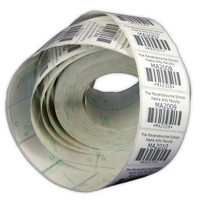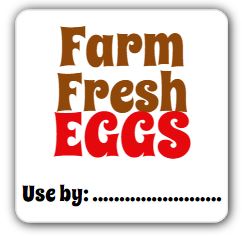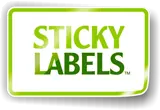Could more Informative Food Labelling Help People in the UK Make Better Choices?

One would need to have had their head well and truly in the sand not to have seen the furore over food labelling of late. With many supermarkets, not least Tesco, under fire for a range of misdemeanours, the topic has rarely been far from the public eye. Now, experts have even gone as far to indicate that substandard levels of food labelling could be responsible for the growing obesity problem. It’s more than simply a case of including a barcode label: All the correct information about the product must be included.
Better Choices for the Consumer
 It would surely be easier for those looking to lose weight to curb the calories if the labelling on their everyday products was more informative. Many of us spend too much time perusing our produce for the saturated and unsaturated fats as well as calories and this can make weight control complicated and hard work.
It would surely be easier for those looking to lose weight to curb the calories if the labelling on their everyday products was more informative. Many of us spend too much time perusing our produce for the saturated and unsaturated fats as well as calories and this can make weight control complicated and hard work.
Obesity has long been a concern but it is only now, here in the UK and over the Atlantic in the USA, that it is being referred to as an epidemic. Although the biggest win for combating this is undoubtedly educating people, encouraging them to eat well and of course, promoting exercise, there is undoubtedly an argument for better labelling. This is particularly the case for younger people.
If youngsters were aware just how much sugar was in the snacks they are eating, and the damage this could do to their health, would they be so keen to purchase and consume it? Although information is currently on packaging, this can often be misleading as it is representative of far smaller portions and often the terms used can be confusing, meaning the labelling in question is next to useless to those who aren’t educated on the issue.
Changes Needed
So, with all of this in mind, it really comes as no surprise that food labelling is under the spotlight in the media. The UK needs to consume more fruit and vegetables and also get more healthy chemicals, such as potassium. With better and more transparent food labelling, we could really help promote a better of quality of life for current and future generations.
New Report
This has all led the government to get involved, with the general election just around the corner it gives various parties the chance to take the moral high ground on the issue; the supermarkets not toeing the line make for easy pickings. They have been reacting to startling figures from a new report, which outlines that about 17% of the UK investigate a product’s sustainability via its packaging. So, it seems that calories and nutrition aren’t the only issues to be considered, should we as a nation be paying more attention to where our food is coming from and how sustainable it is? It seems so.
Positive Signs
 The positive thing to take from this research is that the more responsible shoppers out there are actually willing to pay more for these sustainable items. So, if we can start to look at educating shoppers from all sorts of demographics, proper standards of food labelling could provide a solution to the sustainability problem. The “Food Security: Demand, Consumption and Waste” report from the Environment, Food and Rural Affairs Committee established just this, which should spur people on to take some action on the matter. If people are less willing to purchase an item if the manufacturer cannot prove it is sustainably sourced, a real change could surely be made – to the joy of environmentalists and campaigners.
The positive thing to take from this research is that the more responsible shoppers out there are actually willing to pay more for these sustainable items. So, if we can start to look at educating shoppers from all sorts of demographics, proper standards of food labelling could provide a solution to the sustainability problem. The “Food Security: Demand, Consumption and Waste” report from the Environment, Food and Rural Affairs Committee established just this, which should spur people on to take some action on the matter. If people are less willing to purchase an item if the manufacturer cannot prove it is sustainably sourced, a real change could surely be made – to the joy of environmentalists and campaigners.
The Negatives
The issue to be combated is that despite the fact that shoppers would be willing to pay more for these sustainable goods, this is not currently being reflected in their shopping. This surely emphasises the fact that the food labelling is not doing its job. Now that the government and campaigners are getting on board with the debate, the challenge is to not only get supermarkets to be more transparent with fats, salts and sugars but to also clearly state sustainability. The aforementioned statistics indicate that if this was the case, the low quality and unethically sourced foods and drinks would suffer and ultimately struggle to stay competitive. This would increase quality for the consumer and help the wildlife currently being adversely affected.
Split Second
Finally, the increased standards of food packaging should be achieved by realising that there is a timescale of just a few seconds to give the consumer the information they need and in a format they understand. Calories, fats, sodium and sustainability should all be presented in a way that shows the shopper exactly what they are getting, how it affects the body and whether it is damaging to the planet. This is certainly possible and given the right pressures from the powers that be, we could see this become a reality sooner rather than later.
